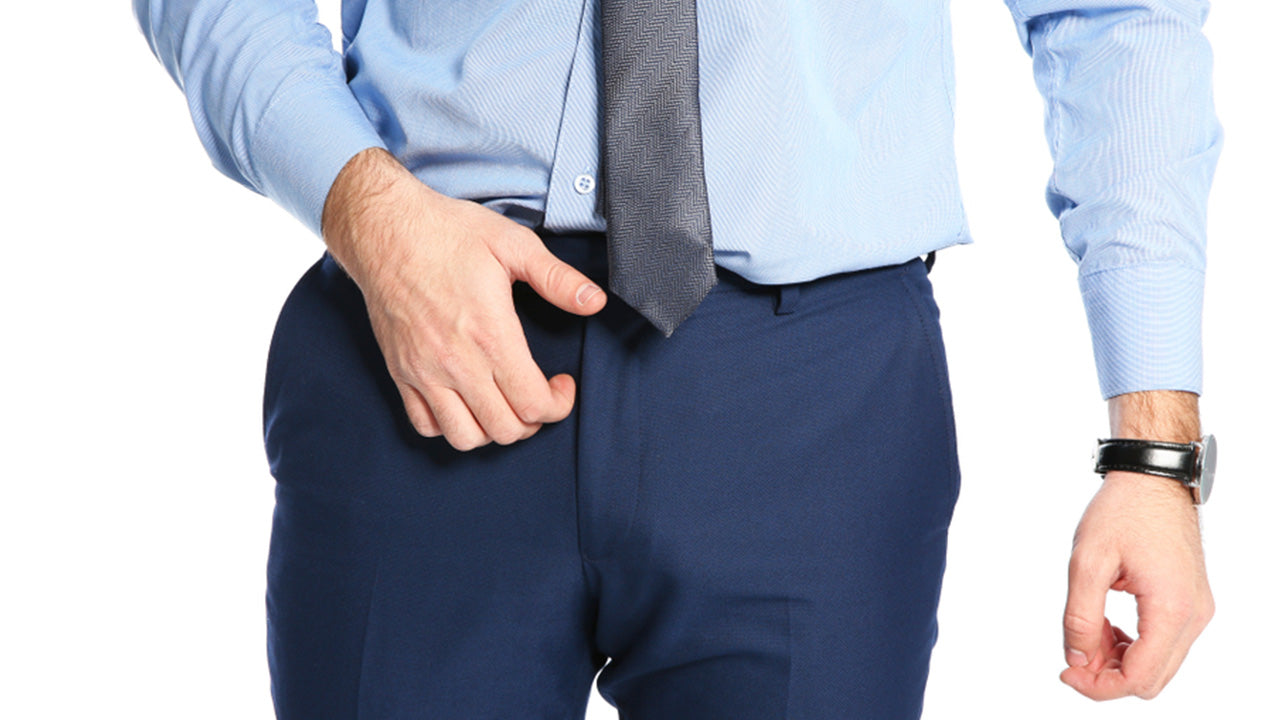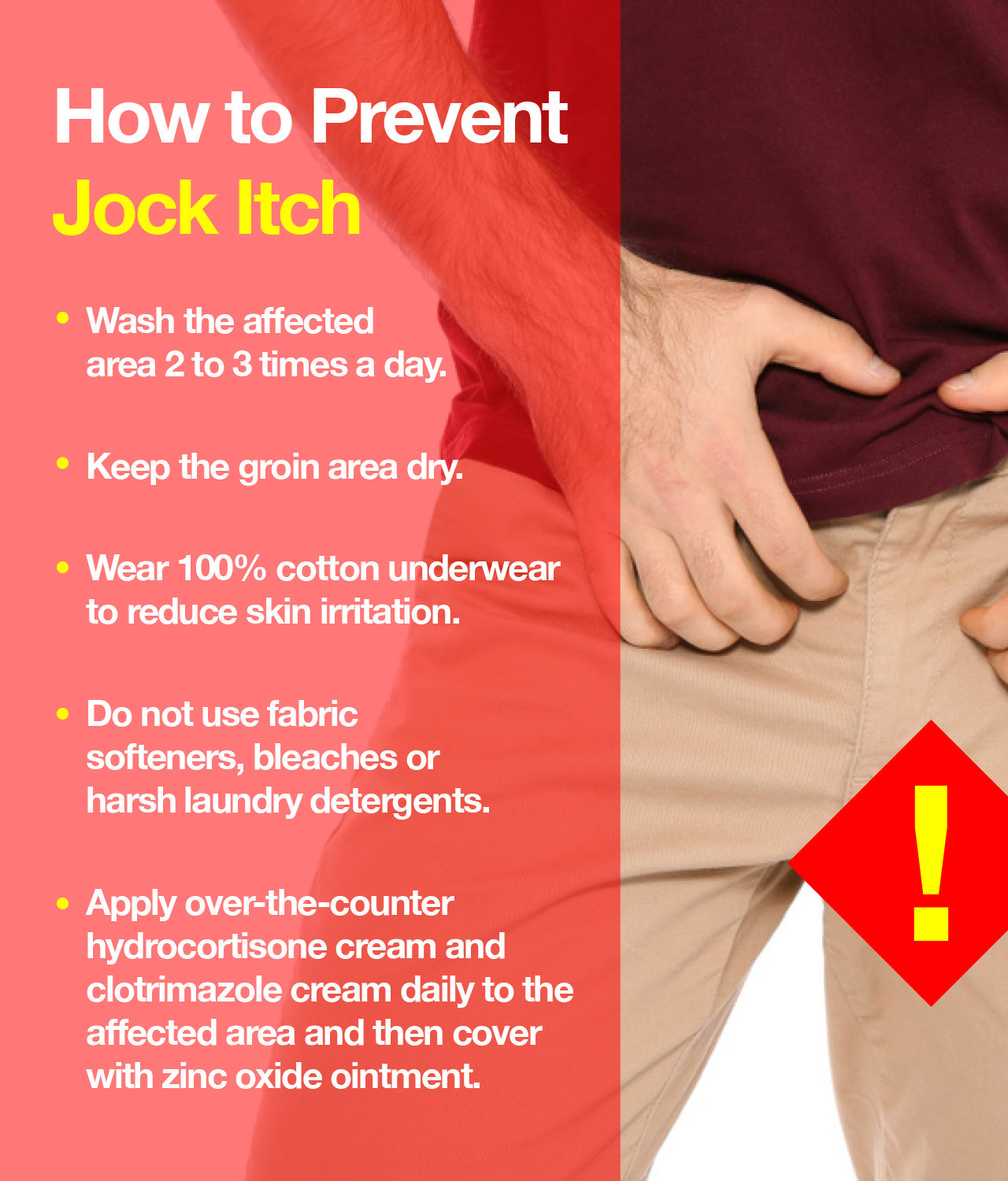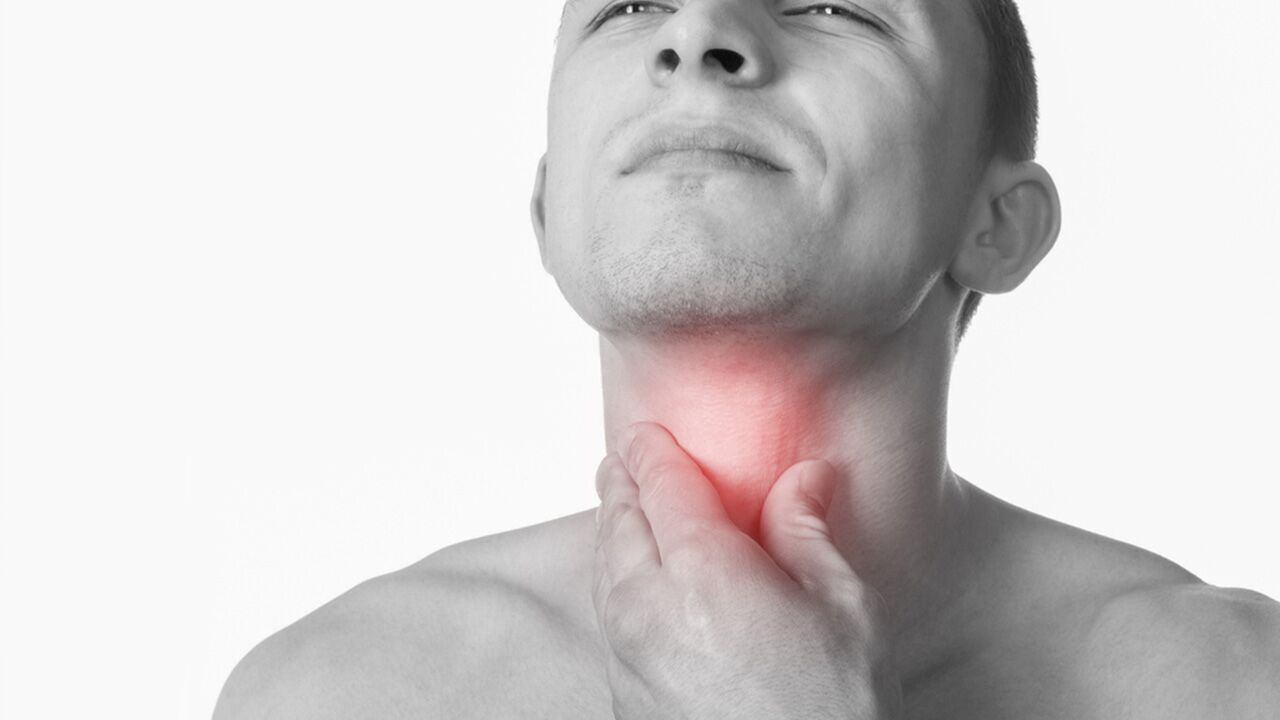How to Get Rid of Jock Itch (Which Non-Jocks Get Too)
 By: by Amino Science
By: by Amino Science

If you’re wondering how to get rid of jock itch, you might also be thinking: “I’m not a jock. Why do I have the itch?” It’s a question doctors hear more often than you might think. The second being, "How do I get jock itch relief?!"
Jock itch, scientifically known as tinea cruris, is most commonly caused by a fungus called Trichophyton rubrum, and it's typically brought on by intense sweating. It also causes fungal infections of the toes and body.
While heavy perspiration is a condition often associated with athletes pushing limits during competition and practice, profuse sweating also can be a hallmark of certain health conditions. Diabetics experience heavy sweating at times, for example, and are prone to jock itch and its associated misery. Likewise, obese people have more skin folds, which is the ideal moist environment for skin conditions such as jock itch to occur. Individuals with compromised immune systems, such as cancer patients or those suffering from chronic illnesses, are also more susceptible to jock itch.
On hot and humid days, people with and without chronic health conditions may sweat profusely. If they are at a pool or the beach, they naturally may be wearing swimwear. But swimwear, by way of its constriction of the genitalia area, creates a breeding ground for jock itch during sweltering summer months. Tinea cruris loves moist environments.
Swimsuits should be washed in hot water and bleach after every use, especially if you think you may have jock itch. Families on summer vacations may want to reconsider the common practice of simply throwing wet swimwear over the HVAC in the hotel room for next use. The HVAC, in fact, will introduce even more bacteria into the damp garment.
What Does Jock Itch Look Like? Is It Contagious?
Jock itch is typically referred to as a men's health problem, but women can get jock itch too. While the name denotes a feeling—an itch—tinea cruris is easy to spot for those afflicted.
Symptoms of jock itch include intense redness that resembles a sunburn and radiates outward from the inner thighs and crotch area. The red rash becomes elevated. The rash also can form on the buttocks. The intensity of the redness can be alarming to someone experiencing jock itch for the first time, particularly if the redness appears before the itch.
Like other tinea infections, tinea cruris can be spread easily. “Jock itch is often caused by the same fungus that results in athlete’s foot,” Mayo Clinic advises on its website. “It’s common for the infection to spread from the feet to the groin, as the fungus can travel on your hands or on a towel.”
What to Use for Jock Itch Relief
The most common types of over-the-counter medications used for jock itch are antifungal creams like Lotrimin, Monistat, or Micatin and antifungal powders like Lamisil keep the groin dry. Both destroy fungi by interfering with their cell processes. Some can be obtained over the counter, but others require a doctor’s prescription.
Multiple studies have shown that antifungal creams plus a corticosteroid yield the fastest results for jock itch relief—emphasis on relief. A paper published in Cochrane Database of Systematic Reviews (U.K.) showed azoles and benzylamines (two types of antifungal creams) both treat jock itch, but that when combined with a topical corticosteroid, they achieved the cure faster.
Or did they?
“Combinations of antifungal treatment with a topical corticosteroid achieved higher cure rates, probably because the skin redness disappears sooner due to the effect of the corticosteroid. There was no evidence of any difference in the speed of resolution of fungal infection with these combination treatments.”
In cases of severe jock itch, your doctor may prescribe a prescription-strength oral antifungal, like Sporanox (itraconazole) and Diflucan (fluconazole). These come with side effects, such as nausea, diarrhea, headache, and indigestion, and are not suitable for everyone. They can also cause serious liver problems.
There are a couple of home remedies for fungal skin infections that might be worth trying, but medical research proving their effectiveness is extremely limited. This is common, however, given the cost of medical research.
How to Treat Jock Itch Naturally
Treat jock itch with these popular home remedies.
- Oil of bitter orange: While it’s just a small clinical trial of 20 people, the results offer hope for those with chronic jock itch. In the trial, half were cured of jock itch when treated with 20% oil of bitter orange in alcohol. The 1996 paper was published in the International Journal of Dermatology.
- Tea tree oil: Tea tree oil is the only herbal medicine British researchers deemed semi-effective in treating fungal infections in a 2004 review archived in Database of Abstracts of Reviews and Effects (DARE): Quality-assessed Reviews, York.
How to Get Rid of Jock Itch for Good
Cleveland Clinic offers common-sense tips for preventing jock itch and similar skin disorders, but they’re only common-sense if you know that athlete’s foot and jock itch go hand in hand.
- Treat athlete’s foot (tinea pedis). Jock itch and athlete’s foot constantly get transferred back and forth via your hands and the towels you dry off with. Make sure you treat them both.
- If you have athlete’s foot, put on socks before underwear to prevent jock itch. Wash your hands after putting on those undergarments. Keeping the affected area covered and practicing good hygiene will prevent you from spreading athlete’s foot to the groin area, or spreading jock itch to the foot. The fungus can grow in both places.
- Change your underwear twice a day if you sweat a lot. Fungi love to grow in moist areas such as the groin, so it's imperative to keep the area dry! It’s worth the extra laundry.
- Wash workout clothes and athletic supporters...immediately. Workout clothes are a favorite resting place for fungi, so in the washer they go.
- Men, keep your private parts dry. Be diligent about preventing excess moisture, but don’t constrict the area. Consider wearing boxers instead of briefs while treating jock itch.
- Never, ever share (or wear) previously worn, unlaundered clothes with (or from) anyone.
- Be smart about groin health. Keeping the area dry and clean is the key.
- Keep your immune system strong. Eat for immunity, which includes antioxidants and amino acids.


Up to 25% off Amino
Shop NowTAGS: conditions
Join the Community
Comments (0)
Most Craveable Recipes




 833-264-6620
833-264-6620



















